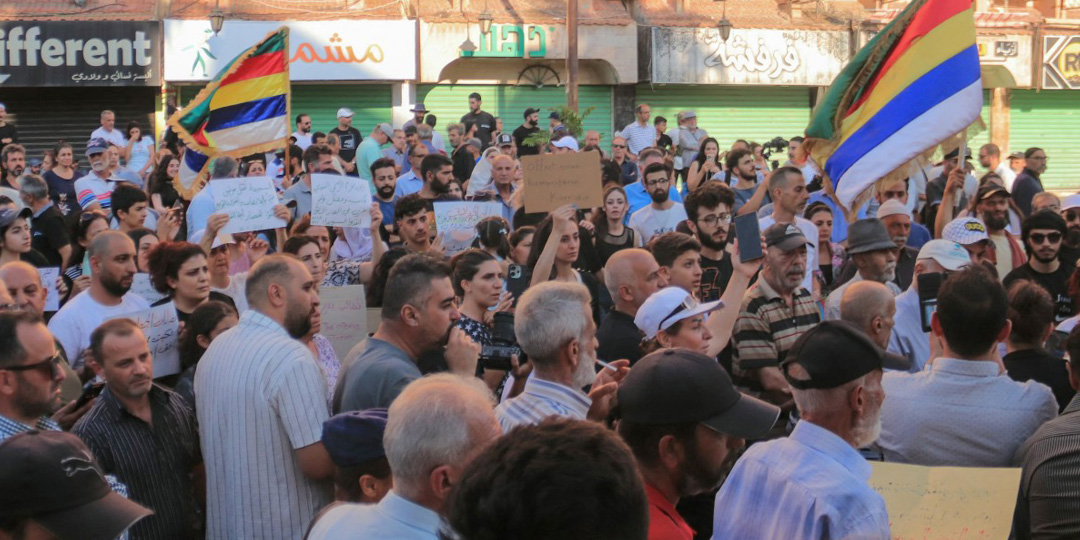A new humanitarian aid convoy reached southern Syria’s Druze heartland on Monday, official media said, as the United Nations warned the humanitarian situation in Sweida province was critical after deadly violence.
Clashes in Druze-majority Sweida province, which began on July 13 and ended with a ceasefire a week later, initially involved Druze fighters and Sunni Bedouin tribes, who have been at loggerheads for decades.
But government forces intervened on the side of the Bedouin, according to witnesses, experts and the Syrian Observatory for Human Rights monitor, which said the violence killed more than 1,400 people, mostly Druze, and accused government personnel of summarily executing more than 250 Druze civilians.
State television said Monday’s Syrian Red Crescent convoy was the third of its kind to reach the province, publishing images of trucks crossing into the region.
State news agency SANA said the 27-truck convoy “contains 200 tonnes of flour, 2,000 shelter kits, 1,000 food baskets” as well as medical and other food supplies.
The effort was a cooperation between “international organisations, the Syrian government and the local community”.
Although the ceasefire has largely held, the UN’s humanitarian agency, OCHA, said Monday that the humanitarian situation in Sweida province “remains critical amid ongoing instability and intermittent hostilities”.
“Humanitarian access, due to roadblocks, insecurity and other impediments… remains constrained, hampering the ability of humanitarians to assess need thoroughly and to provide critical life-saving assistance on a large scale,” OCHA said in a statement.
It said the violence, which resulted in power and water outages and shortages of food, medicine and fuel, had displaced at least 176,000 people.
An AFP photographer in Sweida city said residents were waiting in long lines outside bakeries.
– Protests –
Local news outlet Suwayda 24 reported that “the humanitarian needs in Sweida are dire”, saying many more aid convoys were needed for the stricken province.
It said demonstrations were held in several locations in the province on Monday protesting the humanitarian situation.
The AFP photographer saw demonstrators gathering in Sweida city, some waving the Druze flag and holding signs, one reading: “We don’t want war, we want life.”
On Sunday, Suwayda 24 published a warning from local civil and humanitarian groups of a “humanitarian catastrophe” in Sweida, adding that the province “is under a suffocating, escalating siege imposed by the authorities” that has led to a severe lack of basic supplies.
The Observatory said Monday that government forces were deployed in parts of the province but goods were unable to enter due to the ongoing closure of the Sweida-Damascus highway as government-affiliated armed groups were obstructing traffic.
SANA quoted Sweida provincial governor Mustafa al-Bakkur on Sunday as saying that aid convoys were entering Sweida province normally and that “the roads are unobstructed for the entry of relief organisations to the province”.
On Monday, Russian President Vladimir Putin stressed the importance of Syria’s territorial integrity in a call with Israeli Prime Minister Benjamin Netanyahu after the Sweida violence prompted Israeli intervention earlier this month.
Israel had launched strikes on Damascus and Sweida province, saying it was acting both in support of the religious minority and to enforce its demands for a demilitarised southern Syria.
Putin, an ally of ousted Syrian leader Bashar al-Assad, also said that political stability in the country must be achieved through respect for “all ethnic and religious groups’ interests”, a Kremlin statement said.
bur-lk/lg/dcp
© Agence France-Presse








